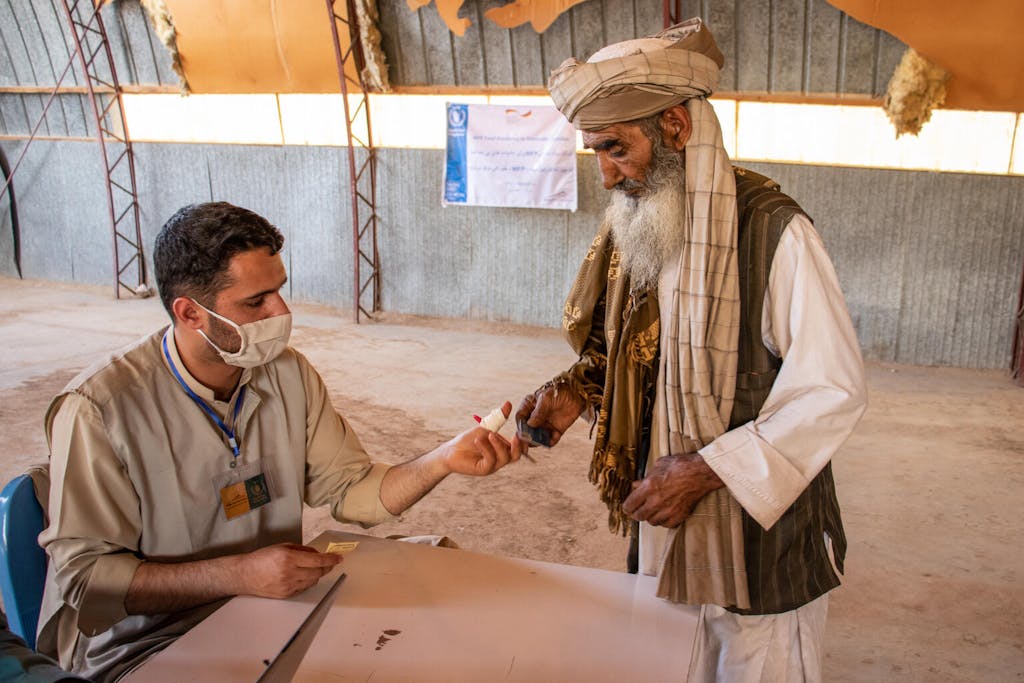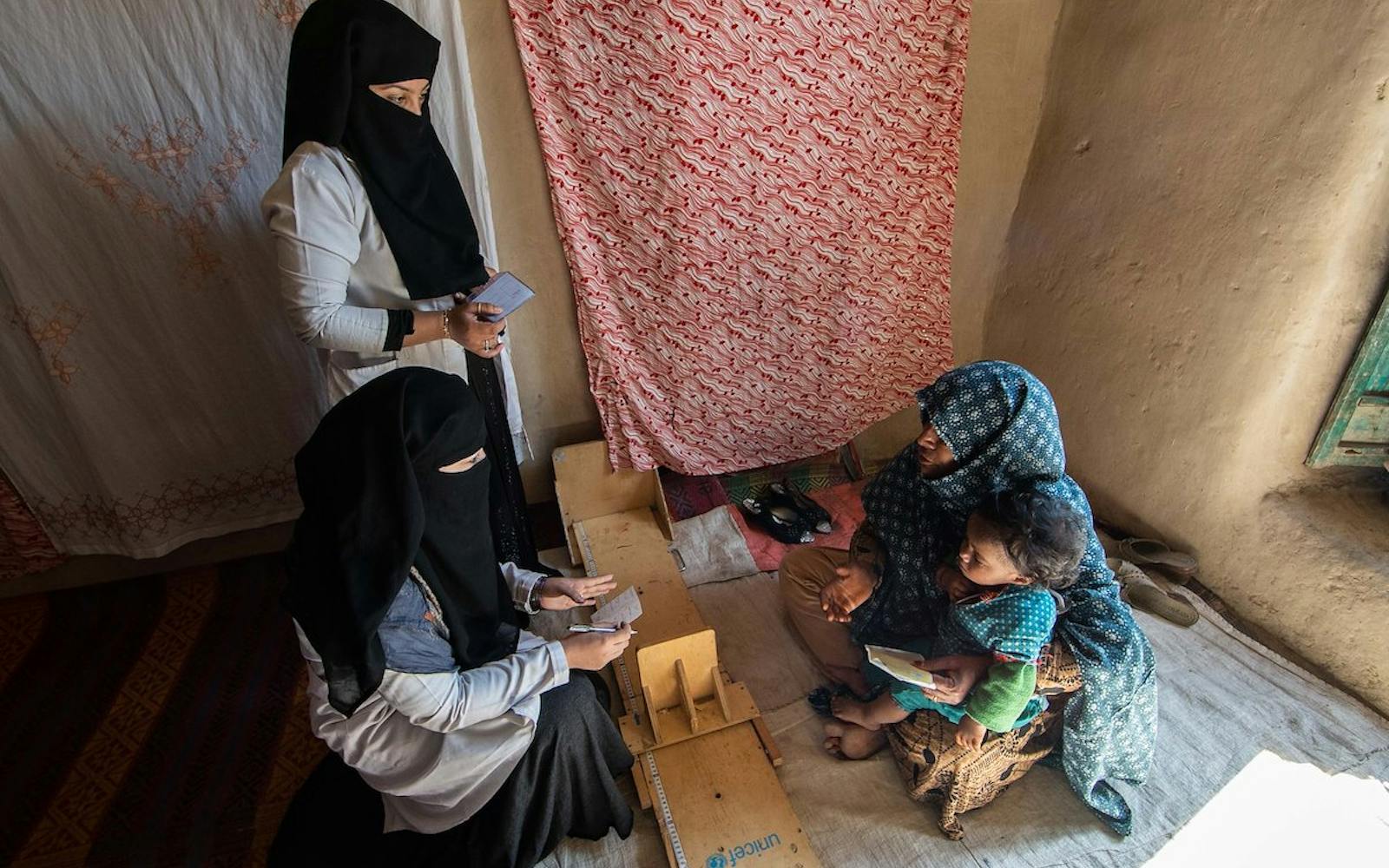The people of Afghanistan have endured nearly 40 years of conflict. And now, drought, economic collapse, and COVID-19 are fueling a massive humanitarian crisis. More than 24 million Afghans need immediate assistance to survive, and the UN is ramping up its appeal for urgent, immediate action.
Humanitarian needs in Afghanistan have reached unparalleled levels. Demand for assistance has increased by 30% in the last year alone, as the country spirals to catastrophe.
Access to food, healthcare, and other basic services is scarce — and the impacts are staggering.
In January, the UN estimated that 4.7 million people will experience acute malnutrition in 2022. The United Nations Development Program (UNDP) projects that 97% of Afghans will fall into poverty by the middle of this year. Natural disasters and the ongoing COVID-19 pandemic have further exacerbated the rate of internal displacement.
The people of Afghanistan need immediate assistance.

At a WFP food distribution site in Herat city, a man registers for food rations. Photo: Sayed Bidel/ UNICEF
How the UN is Responding in Afghanistan
In a virtual pledging conference, the United Nations Office for the Coordination of Humanitarian Affairs (OCHA) urgently called on humanitarian donors to support an appeal for $4.4 billion — the largest appeal ever for a single country — and triple the amount requested in 2021. Forty-one countries responded, pledging $2.4 billion.
Even as other global crises escalate, Afghanistan cannot be forgotten. This moment marks an opportunity for the international community to stand in solidarity with the Afghan people.
“Ukraine is of vital importance, but Afghanistan, you know, calls to our soul for commitment and loyalty,” said Martin Griffiths, the chief of OCHA. “In simple terms, the humanitarian program that we are appealing for is to save lives.”
Keep Up-To-Date On The UN’s Work in Afghanistan
Stay informed on OCHA’s work in Afghanistan as the humanitarian situation unfolds, and find out how you can take action.








